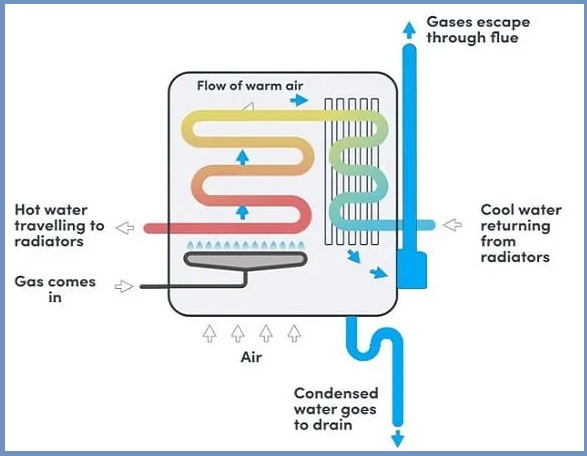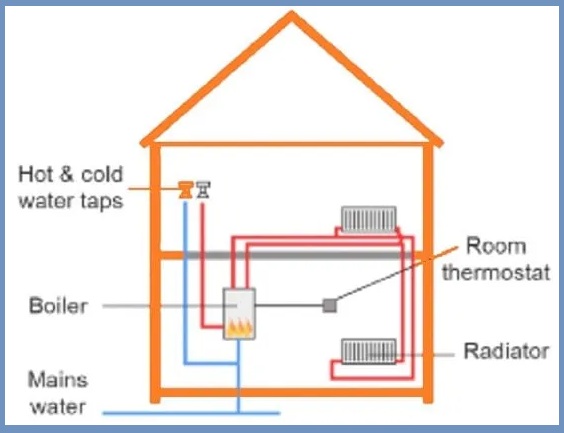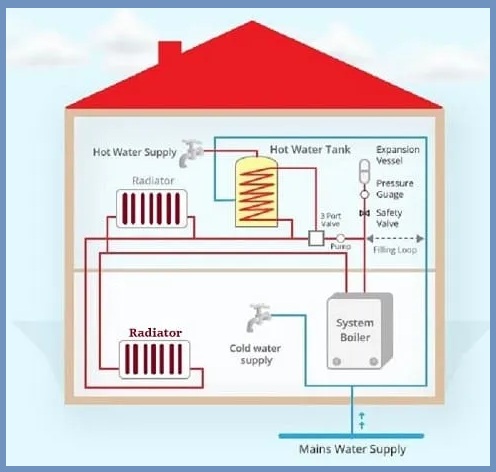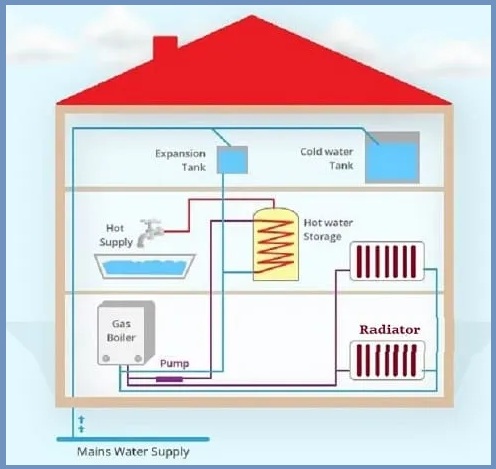A condensing boiler is a specific type of boiler designed to enhance energy efficiency. Energy efficiency can be obtained by condensing water vapor into heat. Oil or gas is used as fuel to operate the condenser boiler. These types of boilers are capable of recovering waste heat from the flue gas. They are capable of achieving a high level of efficiency by condensing water vapor in the exhaust gas and enhancing the latent heat of vaporization. This condensate leaves the system as a liquid through a drain pipe.

Most countries use condensing boilers as an essential component or are subsidized for financial reasons. The main difference between a condensing boiler and a condensing boiler is the amount of heat available it produces. In addition, these boilers can achieve over 90% energy efficiency. The Condensing Boiler uses a separate exhaust system to avoid wasting hot gas. The system extracts heat from the hot gas and uses that heat to heat the water returned from the central heating system. In other words, the actual boiler combustion chamber has to do less work.
Table of Contents
Working Principle of Condensing Boiler
Condensing boilers use condensing technology to make better use of the heat generated. This boiler uses oil or gas as fuel to heat the house. When fuel (that is, oil or gas) burns, it produces exhaust fumes and emits them from the flue. In non-condensable boilers, these flue gases escape into the environment and lose thermal energy. On the other hand, in the condensing boiler, hot gas is extracted from the exhaust gas and fed back to the system’s “so-called primary circuit”. Through the heat exchanger.

Depending on the type of boiler, the primary circuit transfers this heat to household hot water or a heating circuit (radiator). In the
combi boiler, hot water is heated by a secondary heat exchanger, commonly called a plate heat exchanger. In the case of a pure heater, the hot water for home use is heated and stored in a storage tank in the system.
Various Types of Condensing Boilers
Normally, three types of condensing boilers are as follows:
- Combi Boiler
- System Boiler
- Conventional Boiler
Let’s get some idea about these boilers.
1. Combi Boiler
The combi boiler is named after the fact that this boiler has dual functions. These types of condensing boilers draw the required water directly from the mains. Therefore, these boilers do not require water tanks or hot/cold water tanks. For the largest use in the home, the combi boiler is the most profitable and efficient boiler than other types of condensing boilers. These boilers can control both central heating and hot water.

The energy efficiency of the combi boiler is the perfect device for eco-friendly real estate owners. You can get unlimited hot water anytime, anywhere by heating the water directly from the main pipe and turning on the faucet. These boilers occupy less space and take up less time because they do not require additional storage or storage.
2. System Boiler
These types of boilers are most commonly found in large homes where the need for hot water is very high. Unlike combi boilers, which can heat water only when needed, system boilers can continuously deliver hot water throughout the house. The system boiler uses a different tank. Designed for hot water heating with a cylinder because there is no hot water heat exchanger. There are pumps and expansion tanks for installing boilers in closed systems.

The system boiler eliminates the risk of freezing damage and water leaks for homeowners by eliminating the need for water tanks and facilitating maintenance. System boilers are suitable for large families with multiple bathrooms, especially if there is no space for a water tank.
3. Conventional Boiler
Traditional water boilers are ideal for people who live in areas with low water pressure. Unlike the combination device, a water tank and a hot water tank are required separately. This design of the condensing boiler means that multiple bathrooms can be supplied with large amounts of hot water at the same time.

These are ideal boilers for old homes with large rooms. It is larger in size than combi boilers and system boilers. These boilers are not the best option if you are running out of space in your home. It’s a good idea to keep in mind that this type of device is suitable for homes that already have a traditional heating system installed. You may not need to change the pipeline at all, but if you do, you may need to make very small changes. Similar to the system boiler, it can be used in solar systems to reduce environmental footprint and energy costs.
